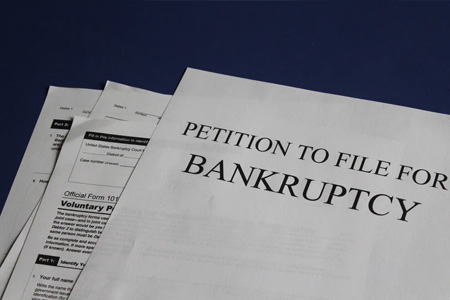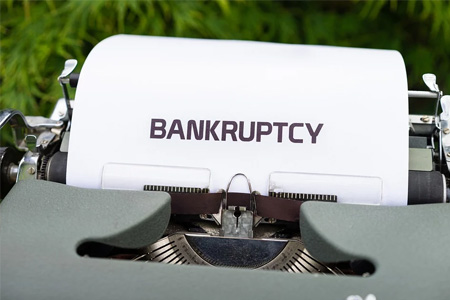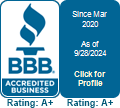Bankruptcy Facts
Bankruptcy is a court action to deal with debt that you cannot repay. If you are facing extreme financial crisis and you file for bankruptcy, the court takes action and stops lawsuits and other attempts by collection agencies and creditors to collect money for the debts you owe them. “Bankruptcy provides the chance for a fresh start”, says Dan LaBeret executive director of National Association of Consumer Bankruptcy Attorneys. He further goes on to say that it serves a legitimate option regardless of one’s station in life.

Bankruptcy Facts
It may seem the easiest way to get out of debt as no doubt it allows you to move on comparably more quickly than a long-term repayment plan, but, the truth is that no financial expert will suggest bankruptcy as the first option as it comes at a very high cost. When you file bankruptcy your credit score will take a great hit and stays in your credit history for full seven to ten years. The consequences are quite widespread as it would make it very difficult for you in using credit to obtain loans for purchasing a car or a home and can also restrict you from obtaining certain types of employment. Therefore, it is not worthwhile and will be an unwelcome choice. Filing for bankruptcy should be considered as the absolute last resort.

Two Types of Personal Bankruptcy
Bankruptcy available to individuals is of two types. The most common form of bankruptcy is Chapter 7 and it is also known as “straight bankruptcy” or “ liquidation bankruptcy”. The other type of bankruptcy you can file for is Chapter 13 which is also called “wage earners” bankruptcy.
What is Chapter 7 Bankruptcy?
Chapter7 bankruptcy is designed to virtually liquidate the debtors’ assets and pay off all unsecured debts like credit cards debts. It also wipes out other types of unsecured debts including medical expenses, installment loans , cell phone bills, department store credit cards, gas cards and veterinarian bills which exceed $500.The court assigns a bankruptcy trustee who will liquidate all qualified assets and pay back the creditors. Everything is done under law-mandated procedures and is the simplest, quickest and the most conventional type of bankruptcy.
The court assigned trustee will liquidate (sell off) all property, except that which the petitioner is allowed to keep and distributes the debtors funds to his/her creditors. The first in line to be paid-off will be the secured debt creditors. Chapter 7 bankruptcy does not eliminate secured debt and there are certain other debts that you will be required to pay back. This includes:
- Child support and alimony (spouse maintenance).
- Some student loans.
- Legal fines, penalties, court fees and government-imposed restitution.
- Debts resulting from wrongful death damages to others or personal injury due to driving while intoxicated.
- Debts owed to certain pension plans.
- Recent federal, state and local taxes.
Besides if you fall behind in your mortgage payments you could also lose your home.
Chapter 7 Bankruptcy – Do I Qualify?
For Chapter 7 Bankruptcy you must qualify under income limits, so you need to determine if your income fits the median income of your state. If your income is lower than the median income of a household of your size than you qualify to file Chapter 7 Bankruptcy.
There are also certain qualifying standards you need to pass before filing for Chapter 7 Bankruptcy. This is called “means test” and is used to limit the number of people filing for Chapter 7 Bankruptcy.
What is “MEANS TEST”?
“Means Test” is a measurement of a person’s income to make sure you meet the qualifying standards of Chapter 7 Bankruptcy. This examines your financial records including income, expenses and secured as well as unsecured debt. It is called The Bankruptcy Abuse Prevention and Consumer Protection Act. It was added to the Bankruptcy laws in 2005 to prevent higher income debtors from canceling their debts instead of paying a portion of their debt through Chapter 13 Bankruptcy laws.
Chapter 7 Bankruptcy – Pros and Cons
Before taking such a life-altering step of filing Chapter 7 Bankruptcy you should be aware of the pros and cons and decide if it is wise to choose this option. It will no doubt get rid of many of your debts but it also comes with severe repercussions. Here is a list of the pros and cons of Chapter 7 Bankruptcy.
Pros
- The process from date of filing Bankruptcy to relief from debt takes only three to six months, which is shorter than any other type of debt settlement plan. You can start over quickly-with a clean slate and with most of your debts forgiven.
- In this type of bankruptcy, you may be allowed to keep all or most of your assets due to State exceptions that generally exempt liquidation of most of your possessions
- Additionally, you will keep your salary (except for some court deductions mentioned above) and property you buy, after filing for Chapter 7 Bankruptcy.
- It may be possible for you to obtain new lines of credit after one to three years after filing Chapter 7 bankruptcy but at much higher rates of interest.
- By Filing Chapter 7 Bankruptcy you will be stress-free as it will prevent your lenders from aggressive collection action.
- It will also prevent collectors from foreclosing on a home or repossessing a car.
Cons
- It affects your credit score for seven to ten years and will create problems in obtaining loans for cars and home and affects your ability to borrow money for a mortgage or credit card and finance an automobile loan.
- You will not qualify for mortgage or home equity loans for several years after filing Chapter 7 Bankruptcy. If you do succeed the interest rates will be very high.
- You may have to sacrifice property that is not exempted and also certain luxury items and even priceless family heirlooms.
- You will not be able to rent a house or apartment and buying a house will be totally out of question for about 7 to 10 years as that’s how long Bankruptcy will stay on your credit report
- You will lose all your credit cards and will have to bid goodbye to your Capital One miles, Marriott reward points and other benefits you get on credit cards.
- By filing for Bankruptcy Chapter 7 you will not get rid of your student loan debt nor will be relieved from your obligations to pay alimony and/or child support.
- If something worse comes along later you will find it very difficult to declare bankruptcy, as you have to wait for six years from the date you last filed bankruptcy to declare another one.
Chapter 13 – Bankruptcy Process
Chapter 13 Bankruptcy is also known as “reorganization bankruptcy” or “wage earner plan” and is used in special situations primarily to allow the filer to keep his home . It is a debtor reorganization proceeding as it encourages the consumer to repay as much debt as possible. No property is required to be liquidated but a regular source of income is needed to file Chapter 13 bankruptcy as you have to prove to the bankruptcy court that you can afford to meet your repayment obligations. You cannot file for Chapter 13 Bankruptcy if your income is too low or irregular.
Filing for Chapter 13 is an important step in life so although you could file bankruptcy yourself the first step should be to hire a bankruptcy lawyer. It makes sense to have a professional helping you as there are so many laws and exceptions involved in the process.
When you file for Chapter 13 Bankruptcy you should develop a payment plan and describe in detail how much you will pay each of your lenders. It should include payment of some debts in full. These are called priority debts as they are the important debts which will jump-start the bankruptcy repayment line. Priority debts include alimony, child support, wages you owe employees and certain tax obligations. You should also include secured debts like car loans or mortgages in your payment plan. Finally, in your plan you should show that you have some disposable income available after making the required payments.
This plan will be relayed to the Bankruptcy Court which will analyze and set up a structured repayment plan that allows the filer to pay back his creditors over a period of 3-5 years. All payments will be made by the court-appointed trustee who will take over your non-exempt property, sell it and distribute the proceeds to your creditors’.
Are You Eligible For Chapter 13?
Before you file for Chapter 13 Bankruptcy you should know if you are eligible and fulfill the conditions given below.
- In order to file for Chapter 13 bankruptcy you will need to have a stable income with assets or disposal income (money left over after you pay for your basic needs like rent, food and utilities etc.).
- Other criteria to qualify for Chapter 13 bankruptcy is that you cannot have more than $1,081,400 in secured debt which includes property or other assets that a creditor may take if you do not make payments. The unsecured debt amount which includes credit cards and other type of debt that is not tied to real assets caps off at $360,475. These amounts change periodically to reflect Price Index adjustments.
- Individuals should prove that they have filed Federal and State income taxes for the last four years prior to filing Chapter 13.
- Individuals or husbands and wives who file jointly are eligible for Chapter 13 whereas businesses are not eligible and must file Chapter 11.
- You are not eligible to file for Chapter 13 bankruptcy if a previous bankruptcy petition was dismissed within the last 180 days. The petition could have been dismissed because you failed to appear in court or did not comply with the court orders. The bankruptcy petition could also have been voluntarily dismissed by the creditors.
Chapter 13 – Advantages and Disadvantages
Advantages :
- It is essentially a consolidation loan as you make monthly payments to a court -appointed trustee, who will then distribute the money to your creditors.
- You will be free from harassing creditors who are not allowed to contact you and must go through the trustee instead.
- You can extend the amount of time you have to pay off your debts
- In case you fall behind on your mortgage or in danger of foreclosure, the Chapter 13 repayment plan will help you to save your home and make the payments on your mortgage.
- Certain secured debts like car loans can be rescheduled and extended over and above the Chapter 13 repayment plan. This can lower your monthly payments
- The creditor cannot collect a consumer debt from the co-signer as Chapter 13 has a special provision that protects co-signers and defined it something purchased for a personal, family or household purpose.
Disadvantages :
- It can take 3 to 5 years to complete the process whereas Chapter 7 takes 4-6 months.
- It will completely ruin your credit score and stays on your credit report for 10 years.
- You will find it difficult to get credit for the next three to five years and all your cash will be tied up in living expenses or debt repayments.
- If you have gone through Chapter 13 bankruptcy in the last six years, it will make it more difficult for you to declare for Chapter 7 later on.


